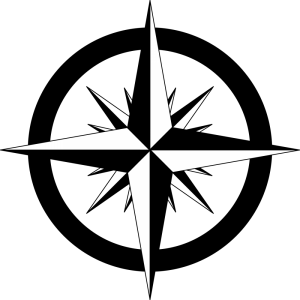It’s funny that I, who can’t handle graphic descriptions in books and rarely watch movies rated higher than PG-13, consider dystopian literature one of my favorite genres.
What is dystopian literature? If you’re a fan of The Hunger Games or Divergent (which will soon be making its movie debut), you’re already familiar with it. Word history makes a little more sense of the genre’s odd name, though.
A utopia is a perfect world (deriving partly from the Greek word ευτοπiα, meaning “good land”). Flip that on its head and you get a dystopia (δυστοπια), a “bad land.” The setting is often a futuristic or fantastical version of our own world–but something is very, very wrong with it.
The exact type of wrongness varies. It can be a nationally televised event in which teenagers fight to the death. It can be an association of “firefighters” who work to burn books rather than save them. It can be a community that has rejected the burden of memory.
All disturbing scenarios, without question. But it is that very ability to unsettle that makes dystopian literature so powerful. It makes us understand consequences. Fahrenheit 451 portrays the book-burning “firefighters” as a consequence of culture-wide entertainment addiction. The cold extermination of humans in The Giver is a consequence of a society that chose painlessness and order over compassion and mercy.
The consequences are extreme, even grotesque, in these fantastical novels. But they raise questions for real life in the subtle and palatable way that only fiction can:
What are the problems with our own society? What will the consequences be? And what can we do to change things?
And that’s why I love dystopian novels–not because I’m a freak who loves to read about twisted worlds. I love these stories because I’m a person who wants to see the sickness of the world I live in and help prevent it from worsening past cure. I like these novels because they make me think, but more because they make me care. Maybe that’s why the genre has picked up so much popularity, especially in the turmoil of recent years.
So: pick up a dystopian novel and let it raise questions for you. If you need a place to get started, here’s a list of my top 5 dystopian novels:
1. The Hunger Games by Suzanne Collins

“In the ruins of a place once known as North America lies the nation of Panem, a shining Capitol surrounded by twelve outlying districts. The Capitol is harsh and cruel and keeps the districts in line by forcing them all to send one boy and one girl between the ages of twelve and eighteen to participate in the annual Hunger Games, a fight to the death on live TV.” -Amazon.com
2. Fahrenheit 451 by Ray Bradbury

“Guy Montag is a fireman. In his world, where television rules and literature is on the brink of extinction, firemen start fires rather than put them out. His job is to destroy the most illegal of commodities, the printed book, along with the houses in which they are hidden.” -Amazon.com
3. The Giver by Lois Lowry

“The story centers on twelve-year-old Jonas, who lives in a seemingly ideal world. Not until he is given his life assignment as the Receiver does he begin to understand the dark secrets behind his fragile community.” -Amazon.com
4. 1984 by George Orwell

“Written in 1948, 1984 was George Orwell’s chilling prophecy about the future. And while 1984 has come and gone, Orwell’s narrative is timelier than ever. 1984 presents a startling and haunting vision of the world, so powerful that it is completely convincing from start to finish. No one can deny the power of this novel, its hold on the imaginations of multiple generations of readers, or the resiliency of its admonitions—a legacy that seems only to grow with the passage of time.” -Amazon.com
5. The Island of Dr. Moreau by H.G. Wells
Although this is sometimes classified as a science fiction novel (and it does contain science fiction elements), its placement on an isolated island in our world, paired with its disturbing social commentary, make it a good example of dystopian literature as well. A power-crazed scientist makes humans out of animals, positioning himself as their god–but when the animals begin to regress, we must ask where the boundary between man and beast lies.
Have you read any of these books? Or do you have another favorite you’d add to the list?


This makes me want to pick up all these books. I think “Do Androids Dream of Electric Sheep” would fit on this list as well… sci-fi, but definitely dystopian as well, and one of my favs.
LikeLike
I’ve heard of that one but not yet read it! I’ll add it to my (long) reading list 🙂
LikeLike
I’m glad you put a positive spin on the love of dystopian literature, I was beginning to wonder if I should be worried about my own obsession..! would also add Justin Cronin’ – the Passage to the list 🙂
LikeLike
Don’t be worried. Dystopian lit just means you’re thinking about things that matter 🙂
LikeLike